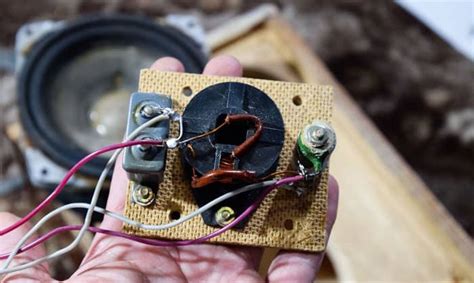How To Stop Radio Interference
Ronan Farrow
Mar 26, 2025 · 3 min read

Table of Contents
How to Stop Radio Interference: A Comprehensive Guide
Radio interference, that annoying static or buzzing sound that interrupts your favorite radio station, can be incredibly frustrating. But don't despair! This guide will walk you through common causes of radio interference and practical solutions to silence the noise and restore your listening pleasure.
Identifying the Source of Radio Interference
Before tackling the problem, it's crucial to identify the source of the interference. This will determine the most effective solution. Common culprits include:
1. Electrical Devices:
- Switching Power Supplies: These are increasingly common in electronic devices and are notorious for emitting radio frequency interference (RFI). Things like computers, chargers, and LED lighting can all be sources.
- Fluorescent Lights: Older fluorescent lights can produce significant interference, especially on AM radio frequencies.
- Household Appliances: Appliances like microwaves, refrigerators, and electric motors can generate interference, particularly when operating.
- Poorly Shielded Wiring: Faulty or inadequately shielded wiring in your home can act as an antenna, picking up interference and transmitting it to your radio.
2. External Sources:
- Neighboring Transmitters: Radio or television transmitters, especially those operating on similar frequencies, can cause interference. This is more common in areas with high population density.
- Wireless Devices: Wi-Fi routers, Bluetooth devices, and cordless phones can all emit radio waves that interfere with your radio reception.
- Electrical Storms: During thunderstorms, atmospheric disturbances can significantly disrupt radio signals.
Troubleshooting and Solutions
Once you've identified a potential source, you can implement these solutions:
1. Relocate Your Radio:
Sometimes, simply moving your radio to a different location can significantly reduce interference. Try moving it away from potential sources like electrical appliances or windows. Experiment with different positions to find the optimal spot for clear reception.
2. Restructure Your Wiring:
If you suspect poorly shielded wiring is the problem, consider having a qualified electrician check your home's wiring. This might involve replacing old wiring or improving shielding.
3. Distance is Key:
Increase the physical distance between your radio and any potential sources of interference. Moving a problematic appliance away from your radio or your radio away from your computer can often solve the problem.
4. Use a Better Antenna:
An improved antenna, either internal or external, can improve signal strength, allowing your radio to better overcome interference. An outdoor antenna, positioned strategically, often significantly reduces the impact of noise.
5. Employ Interference Filters:
For more persistent interference, especially from specific devices, consider using ferrite core filters (choke filters). These clamp onto power cords and help reduce RFI. They are readily available at most electronics stores.
6. Turn Off Interfering Devices:
The simplest solution is often the best. Try turning off potential sources of interference one by one to see if it improves your radio reception. This will pinpoint the culprit quickly.
7. Contact Your Internet Service Provider:
If you suspect interference is coming from your internet service provider's equipment (e.g., a nearby cable box or modem), contact them for assistance. They may be able to resolve the issue.
Preventing Future Interference:
- Regular Maintenance: Regularly inspect and maintain your electrical wiring and appliances to ensure they are functioning correctly and not contributing to interference.
- Strategic Placement: When setting up new electrical devices, keep their placement away from sensitive electronics, like radios and televisions.
- Use Shielded Cables: Opt for shielded cables for electronic devices to minimize RFI emission.
By systematically working through these steps, you should be able to identify and eliminate radio interference, restoring the clear, crisp sound you expect from your radio. Remember, patience and a bit of detective work are often key to success!
Featured Posts
Also read the following articles
| Article Title | Date |
|---|---|
| How To Shave Your Legs With A Safety Razor | Mar 26, 2025 |
| How To Store Ebike Battery | Mar 26, 2025 |
| How To Wire Nav Lights On A Boat | Mar 26, 2025 |
| How To Stop Shaking From Drinking | Mar 26, 2025 |
| How To Train A Donkey | Mar 26, 2025 |
Latest Posts
Thank you for visiting our website which covers about How To Stop Radio Interference . We hope the information provided has been useful to you. Feel free to contact us if you have any questions or need further assistance. See you next time and don't miss to bookmark.
